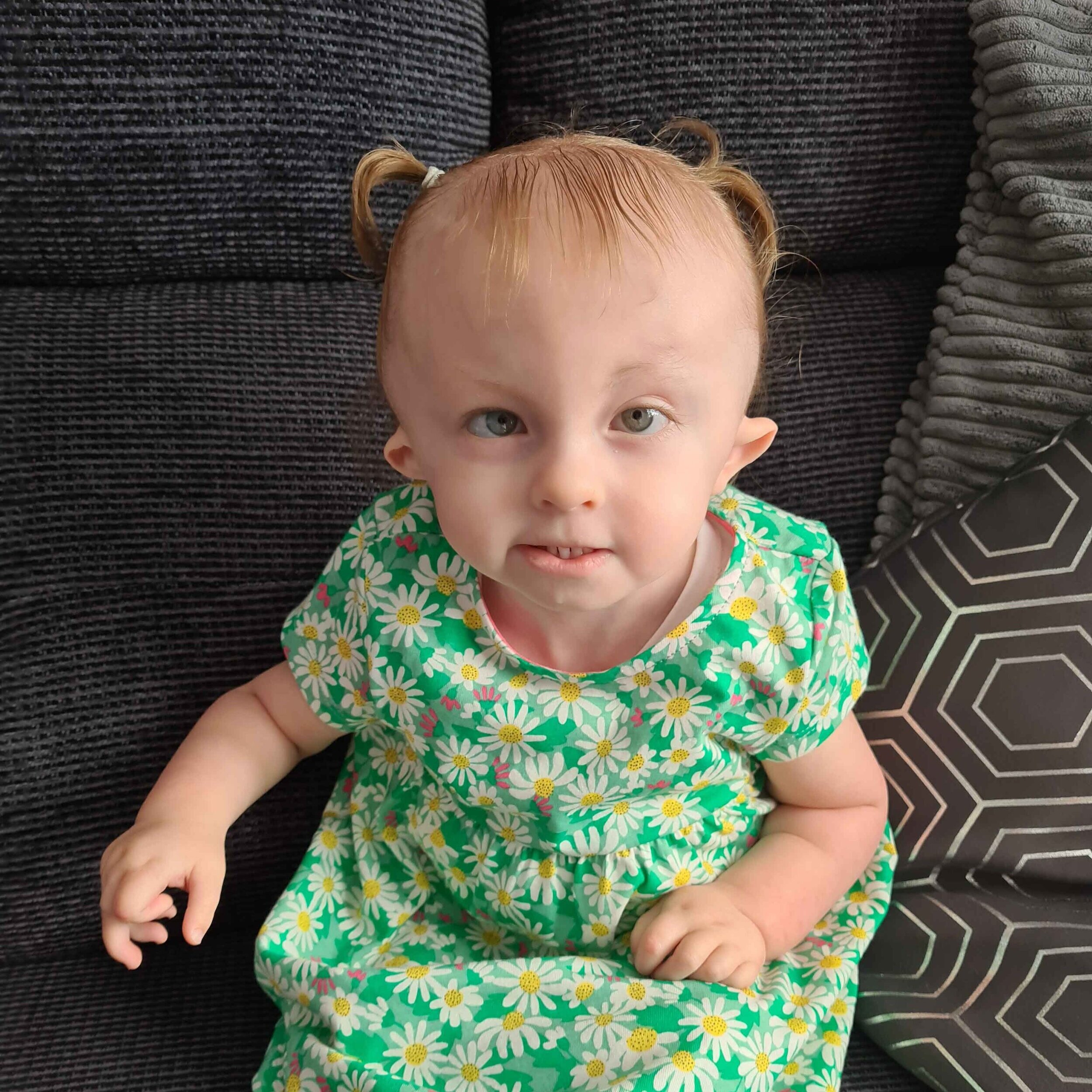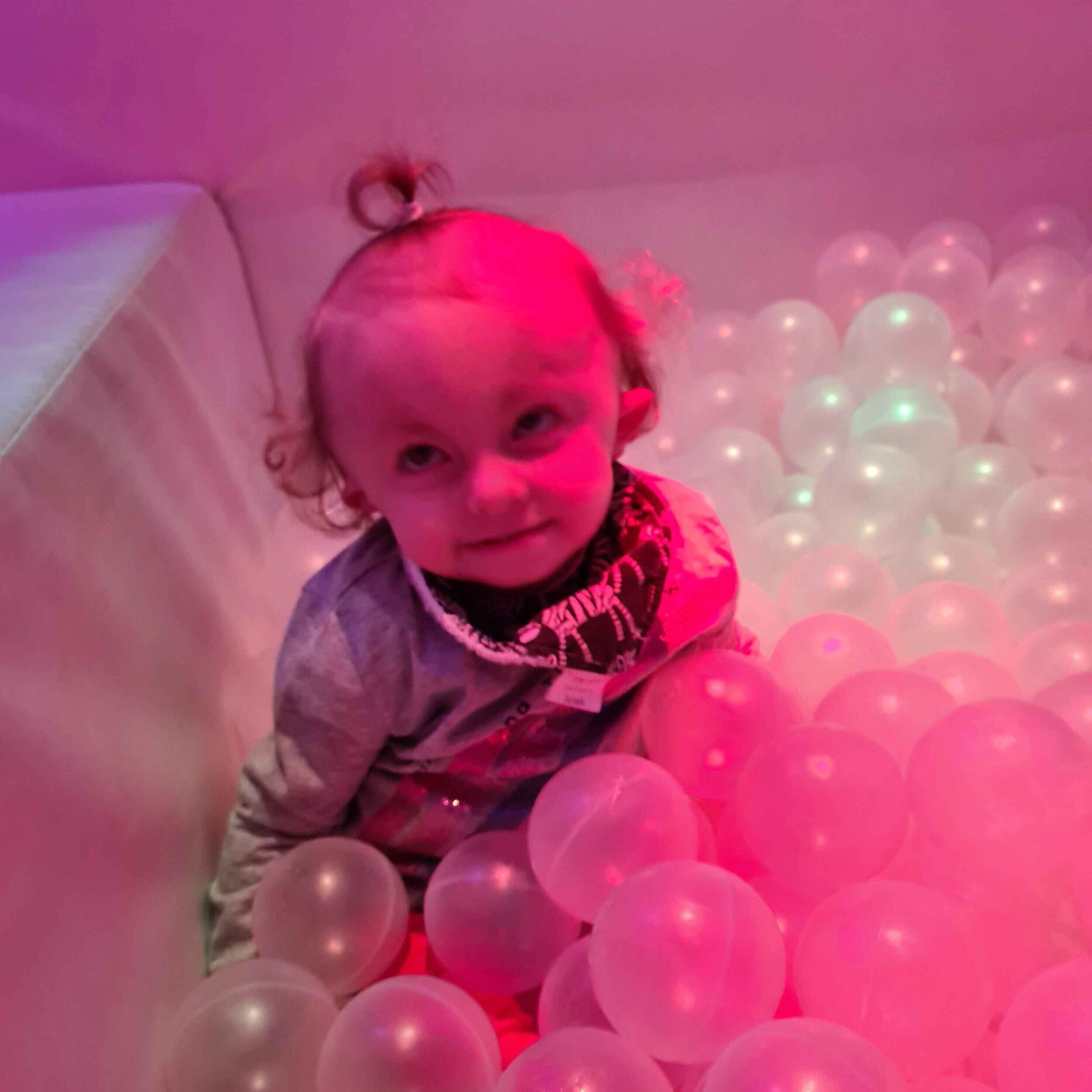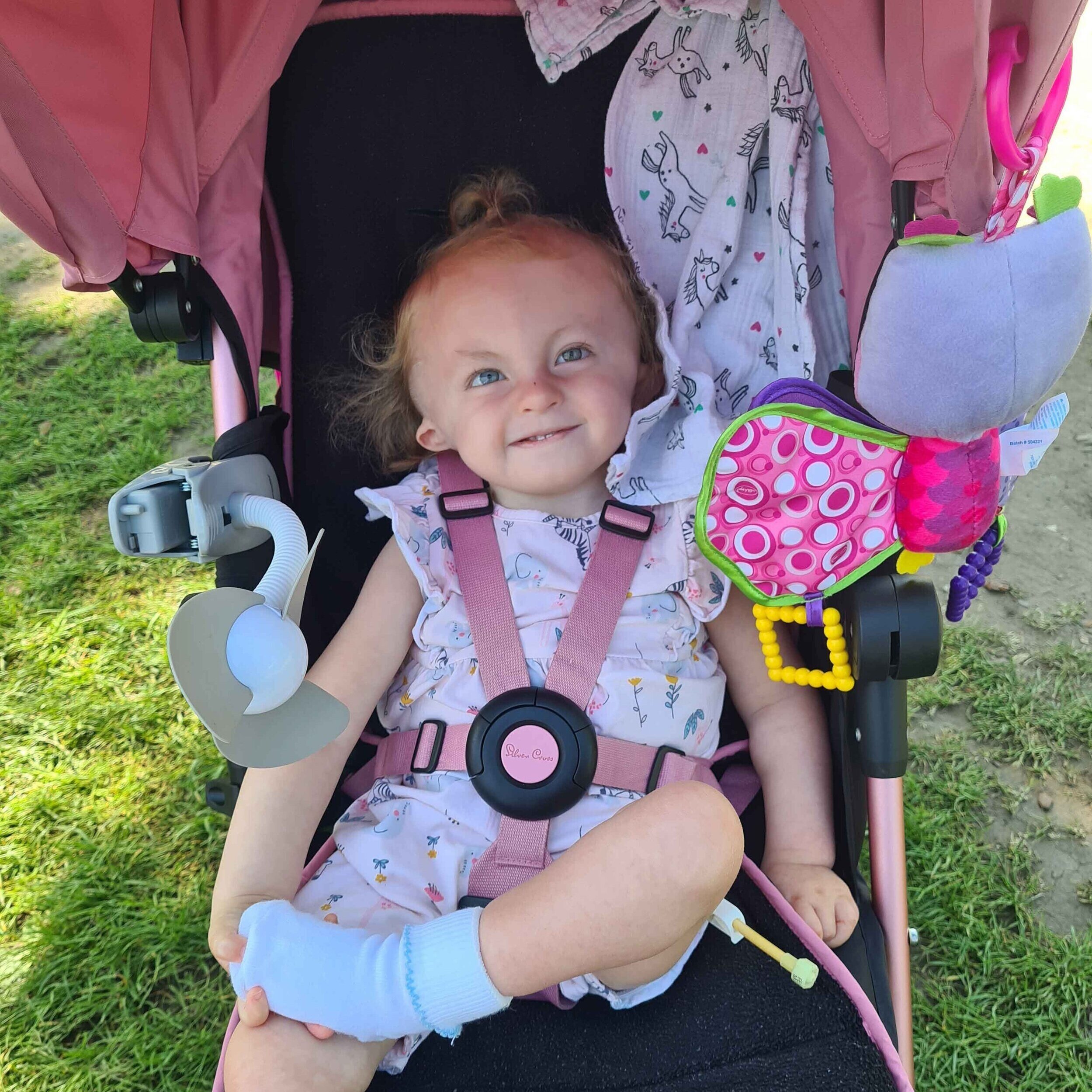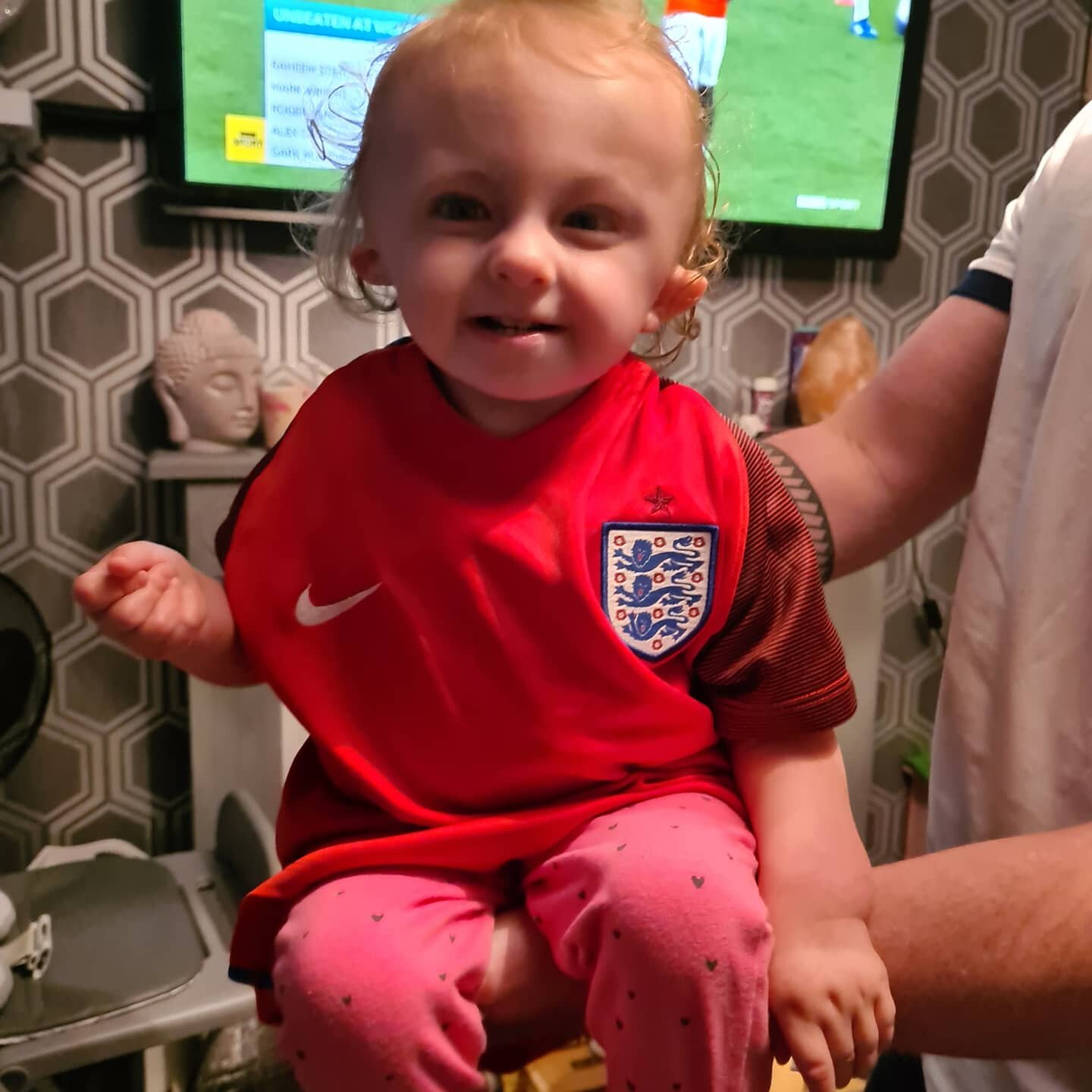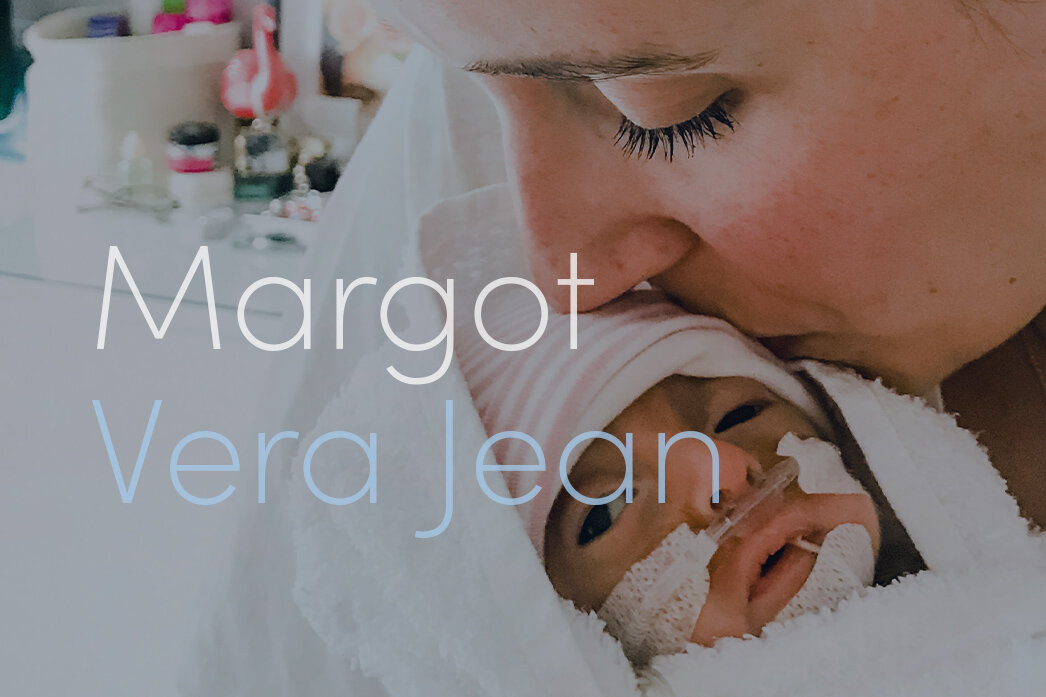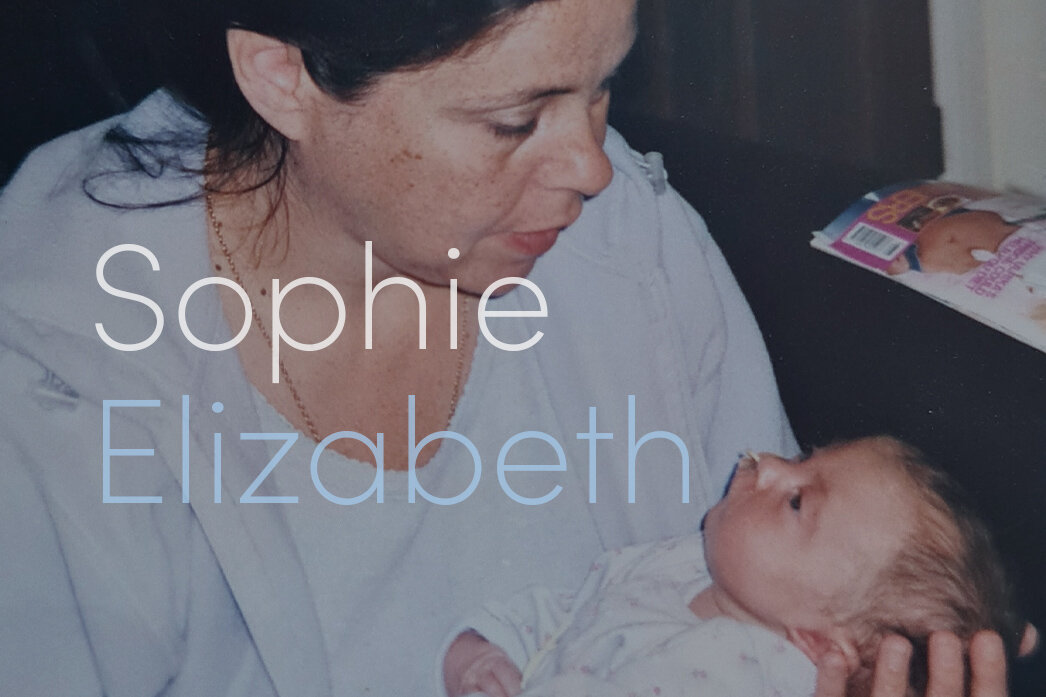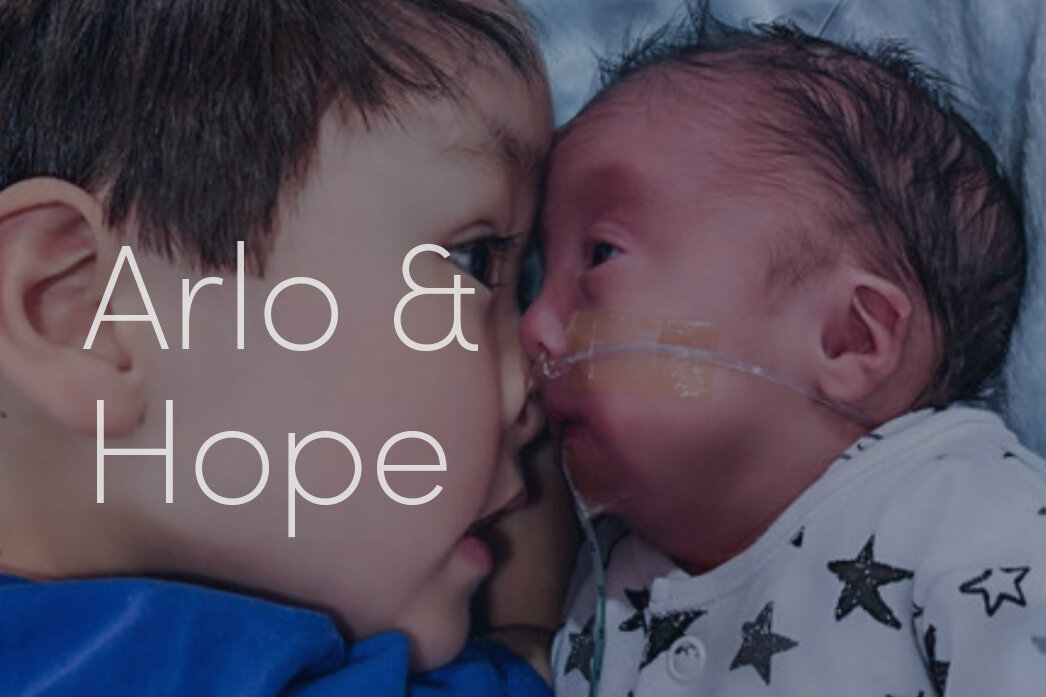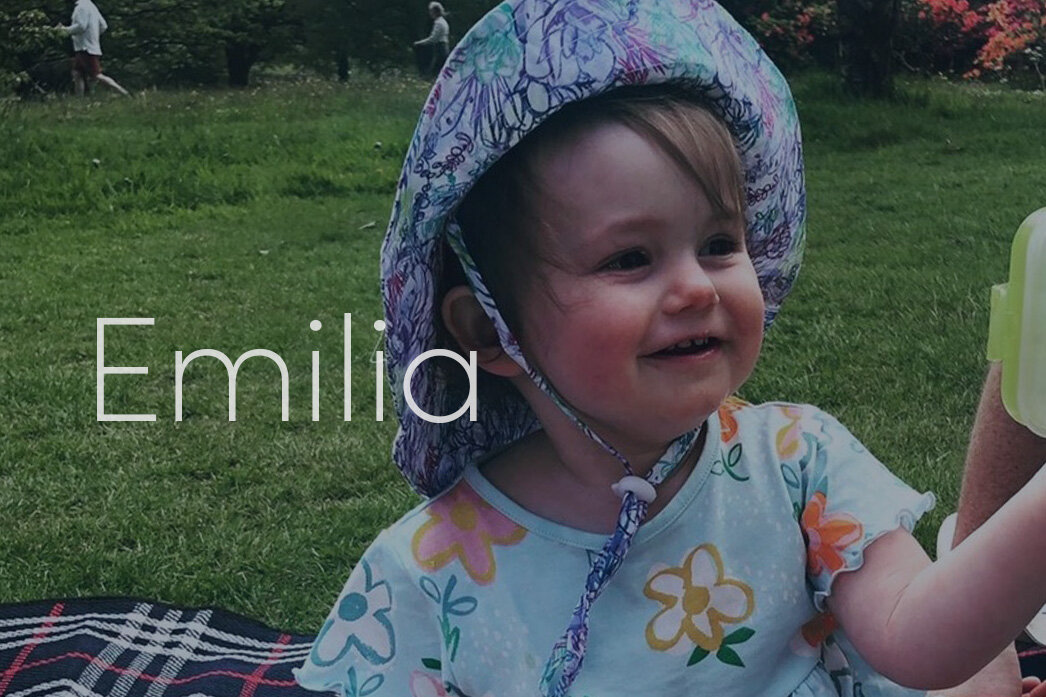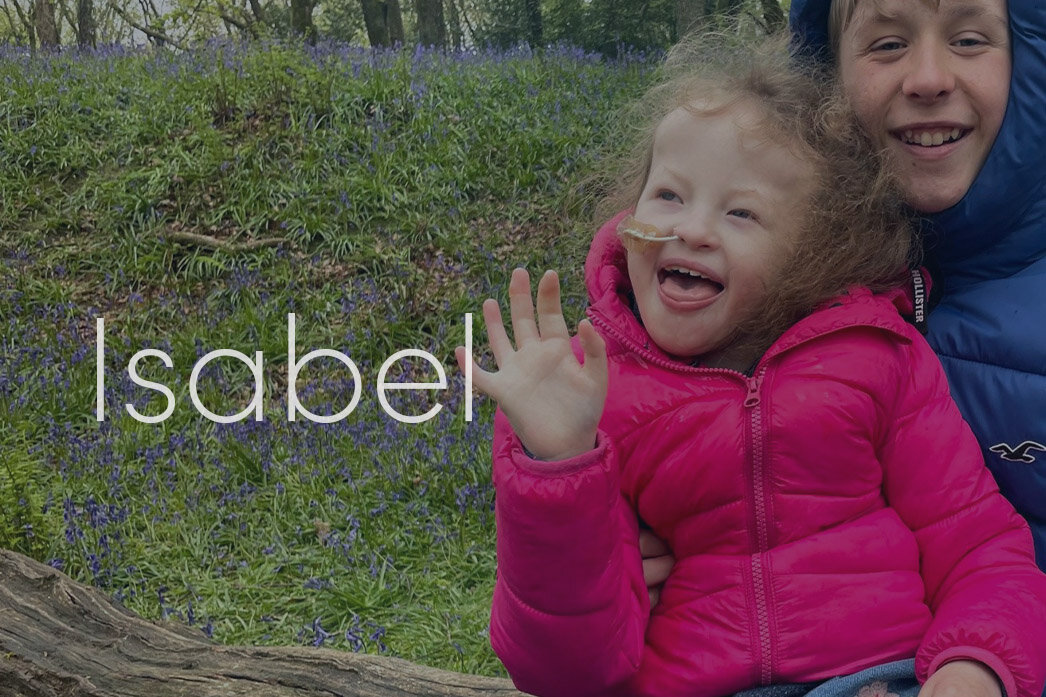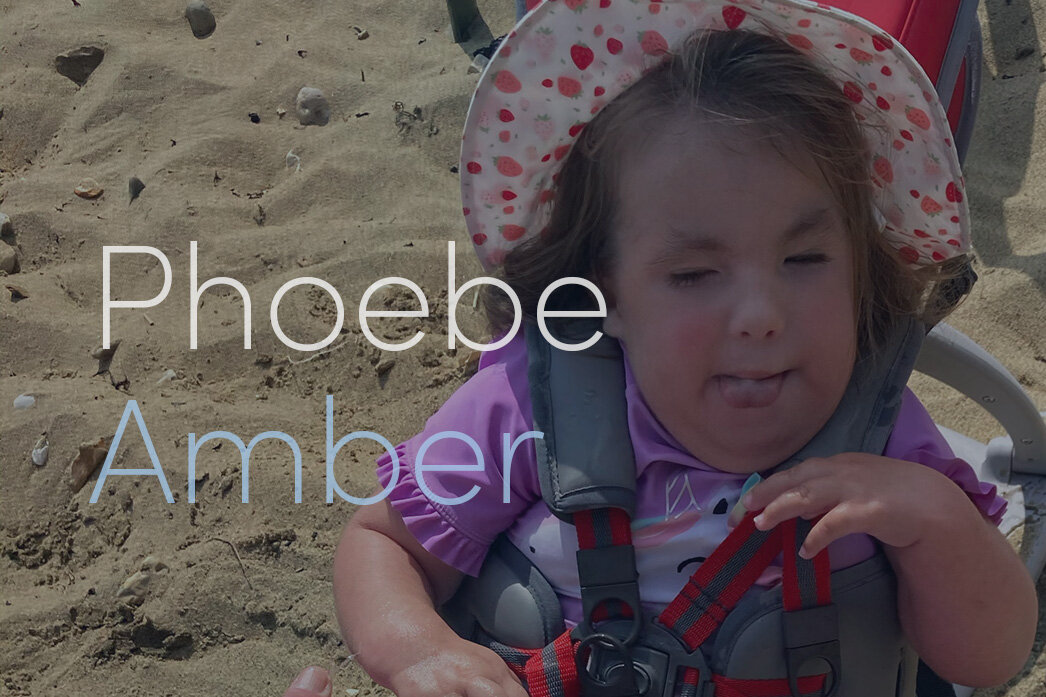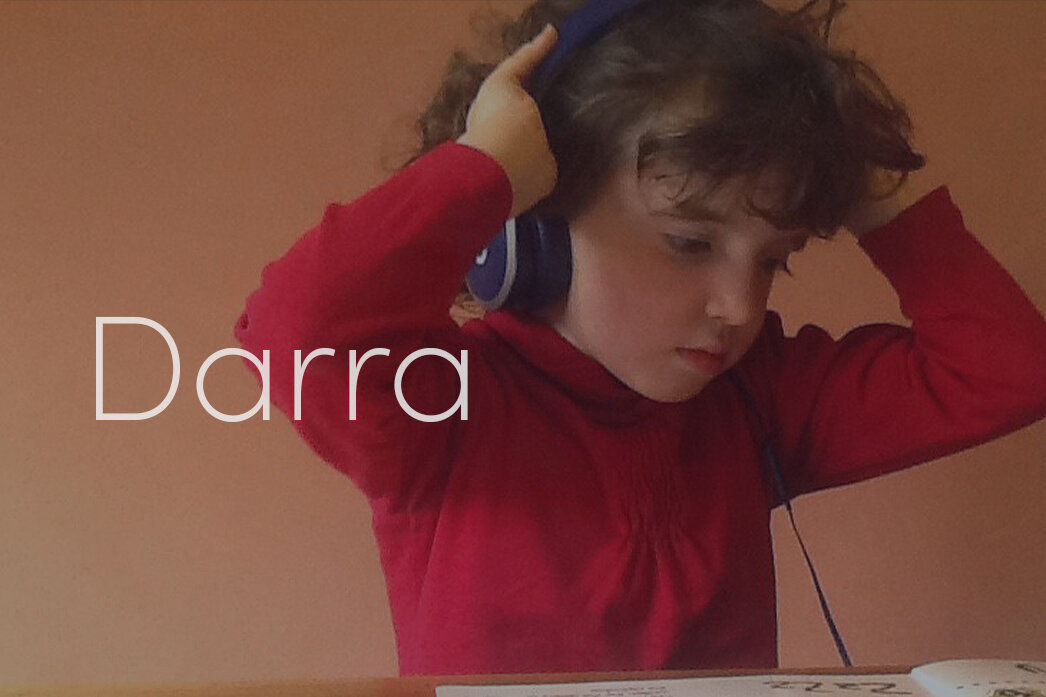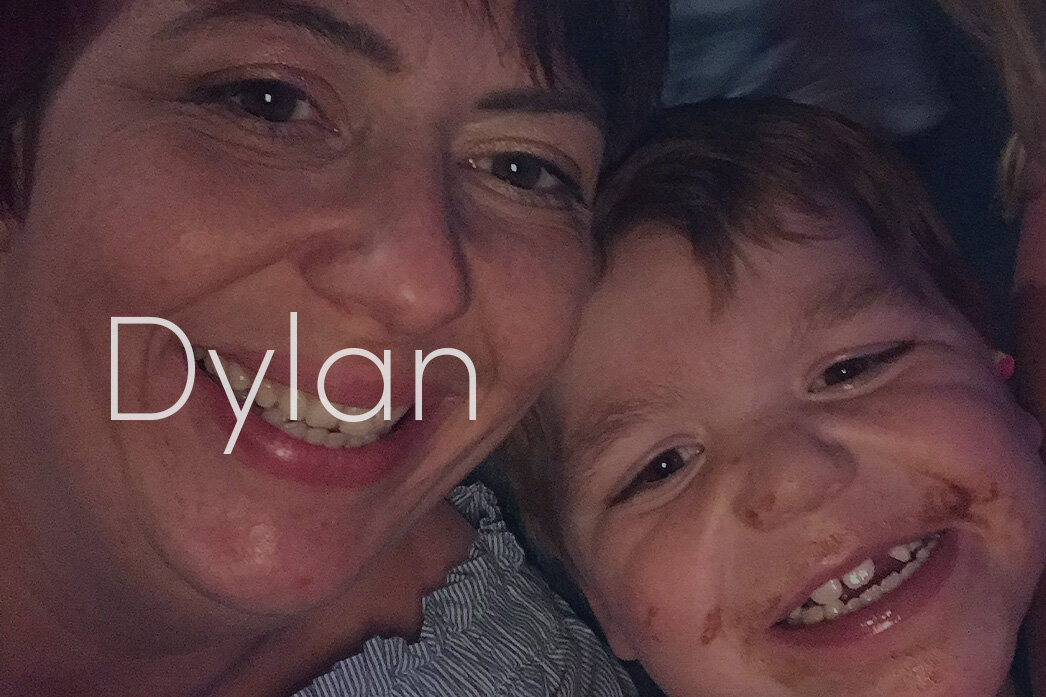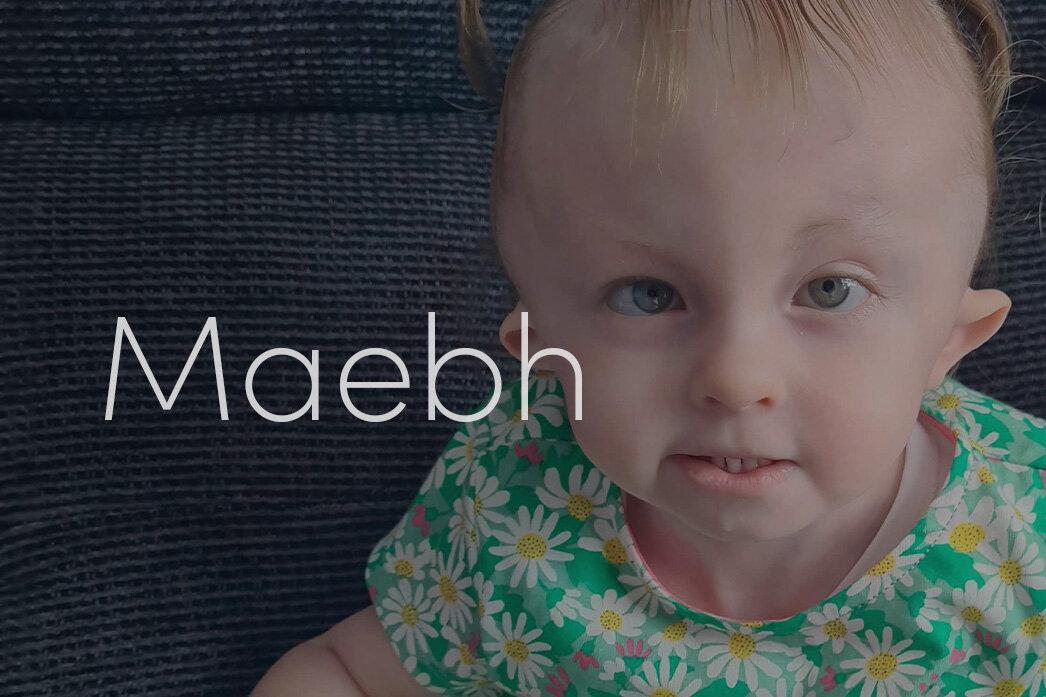Maebh is 3 and she’s got Edwards’ Syndrome (Trisomy 18).
I had a relatively normal pregnancy but she was born at 35 weeks because my placenta had stopped working. She hadn’t grown in 4 weeks so I'd had a growth scan which showed an intermittent flow from my placenta. I went for more investigations and within 2 days, the flow had completely stopped so I was booked for an emergency C-section. Maebh decided to arrive spontaneously by herself in the early hours, weighing 3lb 11oz and was whisked away to neonatal; I didn’t see her for 6 hours.
The neonatal staff pointed out that she had an underdeveloped right ear and small mouth - she was only 3lb, her head was the size of a tennis ball. Then they told us that her hips didn’t mobilise either, so she can only move her legs up and down and not spread them like a frog. Genetic testing was carried out but we were told not to worry. 10 days later, the results confirmed Edwards’ Syndrome.
When we were given her diagnosis, the consultant handed us a 9-page document that he'd printed off the NHS website and said this was all he could find.
He told us to take it home to read and that was the end of that. Her care then completely changed. Looking back, you saw the shift from before her diagnosis - we were heading towards getting her home and they were telling us to start making memories and withdrew their care.
Maebh was 4-weeks-old when we came home but had we not had her diagnosis, I think they would have kept her in the hospital a lot longer. We were sent home on palliative (end of life) care and told that she wouldn't make it to 6 weeks old - just sent home to die.
Within 5 days of being discharged, she was back in hospital with apnea spells. We were told this is normal for Edwards’ babies, that their brains don't function and then unfortunately, these apnea spells kill them. Then, when Maebh had her 8-week immunisations, she had a severe reaction and completely stopped breathing so I had to bring her back. The first 8 months of Maebh’s life were absolutely horrific.
At 8 months, the hospital told us that because her condition is life-limiting, they would not resuscitate her.
I got a bit angry, as you can expect, and the doctor got very defensive and refused to treat Maebh. She complained to our consultant about me but he put his hands up and apologised. He said they never would have imagined when Maebh had her diagnosis at 10-days-old that she would even get to 6 weeks, let alone 8 months. He apologised on behalf of himself and the staff for the way we had been treated. From that day, he has been really supportive. If she was admitted to the children's ward, he came from home to care for her and oversee everything.
It is important to have a good relationship with the consultants even if they’re in the background providing advice. As a parent of a child with Edwards’, you do your own research and find out a lot more than what the doctors will ever know, as you live it day to day. When we go to any of Maebh’s appointments, instead of them telling us things, we tell them what Maebh is doing because they've never seen an Edwards’ child grow up.
I struggled to cope with the information that she was going to die prematurely.
Your life stops and you live for every day. It took me a long time to stop thinking today could be the day, tomorrow could be the day. Our mindset now is completely different and she has given us life; she lights up the room and is always smiling. She's small, very underdeveloped and slow, but she's here and they said she wouldn't be so we find it very hard to believe that she's got full Trisomy 18. A lot of Maebh’s care has been withdrawn because she's not the most severe of children and she's fairly self-sufficient. She has a gastrostomy tube but she's not on oxygen anymore.
We've got quite a good support network around us but since covid, we don't see anybody.
When she was born, they did the blood test that confirmed she’d got full Trisomy 18. We pushed for a skin biopsy because she's just defied everything that they ever said. The biopsy tests were inconclusive because they didn’t take enough sample. They refused to do anything else with that and our genetic counsellor was quite abrupt with us. We saw her when Maebh was 7-months-old and we actually walked out of the meeting because she said that Maebh had all the typical symptoms of an Edwards’ baby and she was very surprised that she's made it this far. I thought she was the one to give us the answers and be positive, giving us hope, but she was the worst person we've ever spoken to. She just said we’re lucky she's got this far.
When I did my research, I found most of the information on Google and from SOFT.
It’s really important to be able to talk to other families. A lot of families that we speak to have children with severe scoliosis etc. and have said that Maebh gives them hope. Some parents have said that seeing Maebh on my Facebook blog is completely different to what the doctors tell them and it's nice to have that little beacon of hope.
For the first 12 months, we were in a bit of a haze because everything centred around Maebh. I cried a lot. We didn't let anybody look after her for the first 14-16 months of her life. My main issue with Maebh’s condition was how to tell my boys that their baby sister was going to die. I spoke to one of the family liaison parents from SOFT, and if it wasn't for Tina, I don't think we would have got through the first few months of her life. My eldest had lots of questions so we bought a book that explains chromosomes and, once he’d read it, he explained it to our other son. Today, they know that their sister isn't the same as an average 3-year-old and it has opened their eyes to a lot of other people’s disabilities.
Telling people was one of the hardest conversations we've ever had to have.
For a long time after, especially at school, the boys used to get looks across the playground because she had the oxygen and feeding tube. Word gets round and as you walked past with the pushchair, people's necks used to stretch to have a look, but they wouldn't outright ask you and I used to get quite upset by that because nobody wants to be stared at. I’d prefer them to approach me and ask what’s wrong with her. It’s usually the OAPs that do that and it raises the awareness, that these things do happen in society. Awareness is massively important which is why I started the blog and because I wanted to document Maebh’s life. Even now, at 3 years old, we document everything; there's not one day where I don't take a photo or video. Raising awareness is huge - these babies do survive, it's not just all negativity.
Maebh is a survivor, she’s a big part of our community. I think it’s really important that there's awareness for medical professionals too. There were nurses on the children's ward that had never seen an Edwards’ baby. She was labelled as ‘the Edwards’ baby’ and we felt like a monkey in a cage, everybody would come in to see. Every time we met somebody new or saw a different nurse we had to go down the same conversation route regarding her life expectancy and what they expect of her. If they were educated on this, they wouldn’t have to put that burden on the parents.
Looking back, it would have been helpful to have more balanced information about Edwards’.
To not be told that she was ‘incompatible with life’, to see some degree of hope because parents don't want to be told that their baby is going to die. We were told that 99% of babies with Edwards’ die before they get to 6 weeks; we weren’t ever told that she might live.
For the future, we don't think of Maebh getting married or having babies, we are realistic and know that’s not going to happen. We do look to Christmas and holidays though. In the early days we wouldn't dare look to the next week, let alone look to the next 6 months but now we book holidays and we celebrate Maebh’s life every 6 months, so we have two parties every year.
Read the other Stories in the ‘You’re not Alone’ Exhibition
Gratefully supported by:


